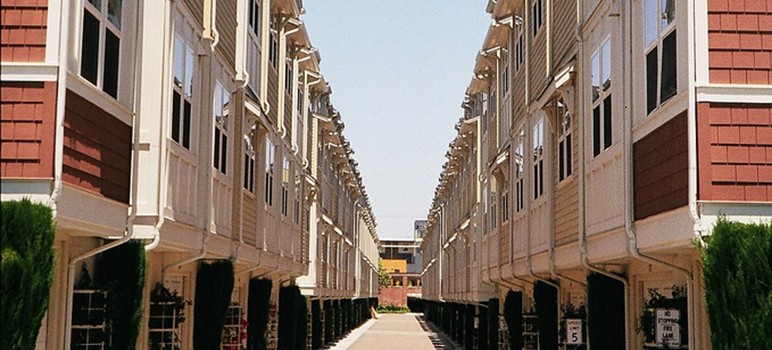San José city officials today announced awards of approximately $54.8 million from state housing programs to bolster funding for new affordable housing.
The city council accepted $42.2 million in state funds from the California Housing Accelerator program and $12.6 million from the Affordable Housing and Sustainable Communities (AHSC) program to fund the 79-unit Roosevelt Park Apartments at North 21st Street and Santa Clara Street, according to today’s announcement.
The Roosevelt Park development includes 40 apartments of supportive housing for formerly unhoused individuals and families, 10 apartments for youth transitioning out of foster care, 10 apartments for the developmentally disabled and families, and 19 three-bedroom apartments for larger families.
“Thanks to vital state funding, Roosevelt Apartments is progressing — but we have more to do for at-risk individuals and families,” said San José Mayor Sam Liccardo. “Increased state investment in affordable housing and transportation improvements through this year’s budget process will enable us to continue to deliver transformative projects like this for our community.”
Funding for the projects come from two grant programs from the State Department of Housing and Community Development (HCD). Through the state’s Cap-and-Trade program, 20% of proceeds from the Greenhouse Gas Reduction Fund is reserved for the Affordable Housing and Sustainable Communities (AHSC) program.
AHSC funds land-use, housing, transportation, and land preservation projects to support infill and compact development that reduce greenhouse gas (“GHG”) emissions. The rationale is that development of so-called “infill” projects is a key tool for cities to combat climate change by reducing urban sprawl and reliance on cars..
Roosevelt Park Apartments, according to the city, will allow at-risk residents to live and work in San José by being near a range of public transportation options with local and rapid VTA bus lines along Santa Clara Street a half-block away and the future 28th Street/Little Portugal BART Station one half mile east.
“I’m excited that after three years of diligent work by our staff, we can finally move forward to provide more affordable housing options for our unhoused individuals and families, foster youth, and those with developmental disabilities,” said Councilmember Raul Peralez, District 3. “I hope to see more of this type of investment from our state partners as we look to address housing needs across our city.”
The state awards include approximately $4 million in transportation funding for protected bike lanes connecting the neighborhood to the new BART station, safer mid-block pedestrian crossings and two electric buses for VTA Route 77 through the project area. AHSC funding also includes $8.6 million for affordable housing development.
In addition to AHSC, the project was awarded $42.2 million through the state’s Accelerator Program. Funded in part with American Rescue Plan Act dollars, the Accelerator Program is a $1.75 billion forgivable loan program that fills funding gaps for projects delayed because prospective residents have been unable to access low-income housing tax credits.
The state’s Housing Accelerator was funded through last year’s approved state budget. Additional money from this year’s budget could help two more San José affordable housing developments in the pipeline – at Tamien Station and Dupont Family – move forward with an estimated $138 million in awards to begin construction on 276 additional total affordable housing units.
The San José City Council earlier this month approved a $205 million spending plan for affordable housing development, homelessness prevention and quick-build solutions to homelessness.
Liccardo in a May 17 statement said. “As we work to deliver on the promise of Measure E, we will continue to leverage state and federal funding as we work towards our goal of building thousands of new units of housing.”
Liccardo’s stated goal is to have 1,000 units of interim housing planned, under construction, or completed by the end of 2022.
Measure E gets its money from a real estate transfer tax on any property sales and transfers valued at over $2 million.
Also this month, Gov. Gavin Newsom announced Homekey awards that included $25.2 million for San José’s purchase of the Arena Hotel in downtown San José, to convert it into interim and future permanent housing for homeless individuals and couples, according to the city.


Perhaps the City of San Jose could use the money to buy land and build ‘affordable housing’ in Alaska considering the Bay Area is running out of water.
The rest of the United States are sending their homeless to San Jose.